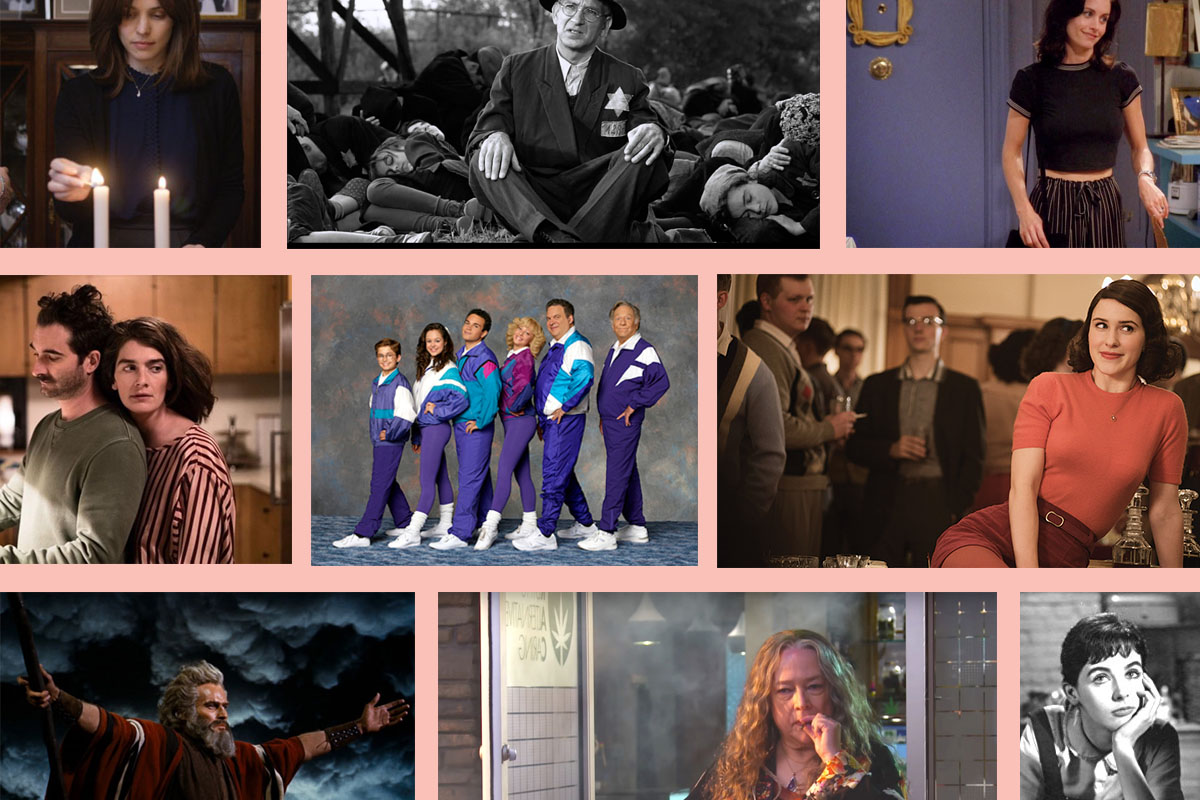Non-Jewish actors playing seminal Jewish characters isn’t exactly a new phenomenon. Charlton Heston played Moses in the 1956 film The Ten Commandments. Unknown child model Millie Perkins beat out 10,000 others to portray Anne Frank in the 1959 film adaptation of The Diary of Anne Frank. And Sir Ben Kingsley famously depicted Itzhak Stern in the 1993 classic film Schindler’s List.
But in 2018, when there is so much focus on representation in Hollywood, is it still okay for Jewish characters to be played by non-Jews?
Jews continue to battle the stubborn stereotype that they “run” Hollywood. It’s true that over the last century, Jewish directors, producers, writers, and actors have made an indelible mark on our entertainment industry. Yet Jews still experience plenty of discrimination in Hollywood. There are certainly no shortage of offensive Jewish stereotypes depicted on-screen, from overbearing Jewish mothers to Jewish American Princesses to Nice Jewish Boys.
Further, the vast majority of mainstream Jewish stories seem to fall into one of three categories: persecution stories (Schindler’s List, Son of Saul), religious stories (A Price Above Rubies, One of Us), or downright stereotypes (The Big Bang Theory, The Nanny).
And most Jewish characters still remain bit characters. As Sarah Silverman put it to the Hollywood Reporter when asked about Jewish representation in film, “They don’t want to see us reflected in art, unless we’re the sassy friend that gives exposition to the main character, or the cunty first girlfriend before the guy learns what love can be.”
Silverman also shared that a well-known director told her that, thanks to her Jewishness, she could never be cast as a character who deserved love. Jewish women have traditionally been locked out of leading lady roles. Many a Jewish actress has changed her name to sound less Jewish, including Lauren Bacall (formerly Betty Joan Perske) and Winona Ryder (formerly Winona Horowitz). In fact, there is a long history of actors distancing themselves from their Jewishness to appeal more to the mainstream.
Jewish actors are often left with an impossible choice: abandon their Jewishness, or play into stereotypes. Even if they choose the second option, they could still be beat out for a role by a non-Jewish actor.
Amazon Original The Marvelous Mrs. Maisel is a critical darling that’s been praised for its non-stereotypical depiction of mid-20th century Jewish life. Yet few have pointed out that the show’s lead, Rachel Brosnahan, isn’t Jewish.
ABC’s hit sitcom The Goldbergs portrays an All-American suburban family in the 1980s who barely acknowledges their Jewishness. The show’s creators were so worried about alienating their potential audience that they didn’t even mention that the title family was Jewish until season two. Of course, this isn’t necessarily a bad thing. Creator Adam Goldberg has admitted that being Jewish wasn’t a main part of his identity growing up. And for many American Jews, this non-secular depiction of Jewish cultural life likely rings true. Still, it’s glaring that outside of acting veterans George Segal and Jeff Garlin, there are no Jewish actors among the show’s nuclear family.
On Amazon’s Transparent — often lauded as the most Jewish show on television — Gaby Hoffmann and Jay Duplass play Jewish siblings. Neither is Jewish. When asked by Nylon what she thinks about playing a Jewish character as a non-Jew, Hoffman revealed: “I was raised by a lapsed Catholic, and I was raised in New York City, where my godparents and neighbors were Jewish, and I celebrated Yom Kippur and went to temple with them. If you grow up in New York, you know that old joke? You’re ‘Jew-ish.’ So I think there’s a continuum and a fluidity that we all feel really comfortable with as being sufficient.”
Meanwhile, Duplass told HuffPost Entertainment that Transparent creator Jill Soloway was struggling to find an actor to play Josh Pfefferman, “a wildly charismatic-slash-insecure, brilliant-stunted mid-30’s Jewish guy.” Duplass himself suggested several Jewish actors, which Soloway dismissed as “not right” for the role. Finally, she told Duplass, “It’s you. You are him. You’re going to play him.”
Of course, it’s possible that there were no Jewish actors available who fit Soloway’s vision of her character Josh. Still, as a viewer, it can be frustrating to see the few non-stereotypical Jewish stories on-screen depicted by non-Jews.
Jewish characters can be successfully portrayed by non-Jews, and have been for decades. But when those characters veer into stereotype territory, something feels off.
In the Netflix series Disjointed, Kathy Bates (who’s not Jewish) plays over-involved Jewish mother Ruth Whitefeather Feldman, who constantly pesters her son to hook up with his co-worker so they can hurry up and have “caramel babies.”
And despite purposely avoiding Jewish storylines, The Goldbergs’ creators seem to have no problem leaning into the Jewish mother stereotype, either. Wendi McLendon-Covey portrays Beverly Goldberg, a stay-at-home mom who meddles in every aspect of her children’s lives, often with increasingly disastrous results.
Yet, there is truth in the story. Adam Goldberg’s mother, Beverly, really was an overly involved SAHM. And he didn’t significantly identify with his Jewishness growing up. So, is his story not worth telling? Would it make a difference if Beverly was portrayed by a Jewish actor? Does it count that McLendon-Covey is hilarious and extraordinarily lovable as Beverly Goldberg, that the show orbits around her immense talent?
When it comes to Jewish identity and representation, the answers are rarely ever straightforward. Jews are not a monolith, and opinions on the topic vary as widely as the Jewish experience.
There are certainly bigger fish to fry, what with the current rise of anti-Semitism and a fifth of millennials having never heard of the Holocaust. But representation matters. Stereotypes matter, especially when they’ve been so damaging to Jews in the past.
There may not be a hard-and-fast answer to the question, “What’s the deal with non-Jews playing Jewish characters, anyway?” But thanks to Hollywood’s sordid history of Jewish representation, there are still plenty of good reasons to ask.



